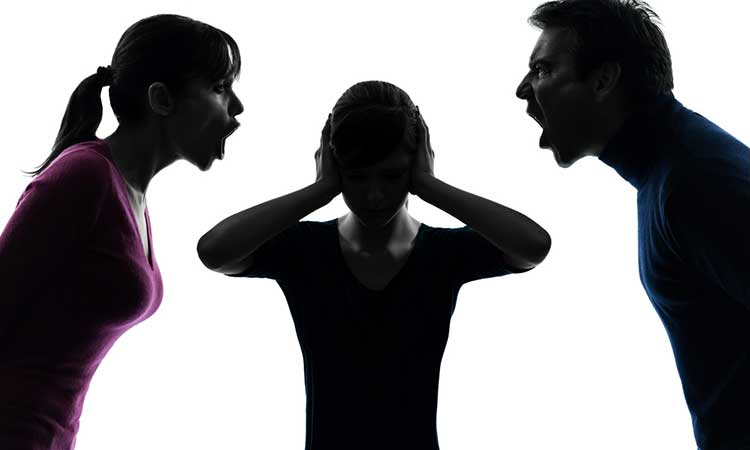
Effects of parental conflicts on children
There is no such thing as a relationship entirely free from conflict and disagreement, and surely all children see their parents argue at one time or another. When parents relate to each other calmly and positively even during a disagreement, solve the problem together, and show children through their subsequent interactions that the issue has been resolved, then the children learn conflict-resolution skills, which they can apply to their own relationships down the road, from such situations. Remember, differences of opinion are okay as long as they are handled constructively. Modeling respect for others, compromising, and cooperation are invaluable learning experiences you can provide for your child.
Parental conflicts become toxic when they are frequent, intense, aggressive and hostile, involving verbal/physical insults and raised voices. From a very early age—as young as six months—children show distress when their parents fight. Their reactions can include fear, anger, anxiety, and sadness, and they are at higher risk of experiencing a variety of health problems, emotional-behavioral problems, anxiety, disturbed sleep and difficulty in focusing and succeeding at school as well as failing to form secure attachments in adulthood.
Studies show that children from high-conflict homes are more likely to do poorly in interpersonal skills, academic achievement, problem solving abilities and social competence. Those problems negatively impact their forging relationships in adolescence and adulthood.
Chronic parental conflict creates a climate of fear and unpredictability in an environment that is meant to be safe and secure and comfortable to grow up in. Children may feel anxious, frightened, and helpless. They may worry about their own safety and their parents safety even if there has been no actual or threatened violence. Children often believe they are responsible for the fighting that goes on between their parents. This is especially true if children hear arguments related to different parenting styles, school related issues, or financial issues related to children.
Family or couples counselling may be appropriate for some parents to help them put into practice new and better ways to communicate with each other. Many counsellors specialize in working with couples to resolve these communication issues. Seek out those counsellors whose area of expertise is in couple relationships. As parents, please resolve your conflicts in a healthy manner, practice healthy communication skills, dont criticize the other parent in front of the child and seek professional help when needed.-